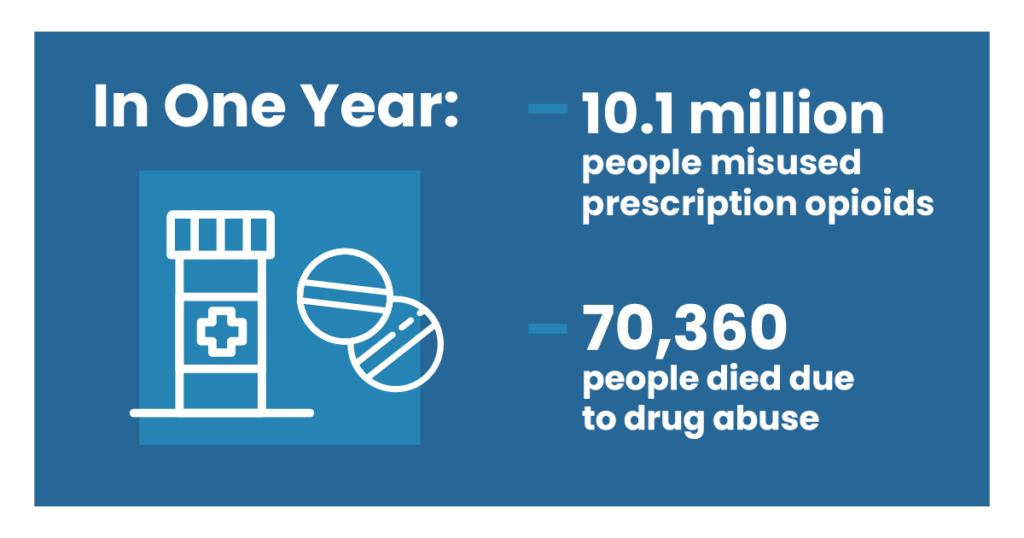According to the American Society of Addiction Medicine (ASAM), addiction is a chronic disease that alters the brain’s reward centers. While this might involve behaviors such as gambling, shopping, or sex, addiction is most commonly connected with substance abuse that fundamentally alters the way the brain regulates dopamine and other neurotransmitters associated with the reward system. Addiction’s behavioral traits include a lack of self-control, cravings, withdrawal symptoms, and physical side effects such as harm to vital organ systems.
The signs of addiction vary depending on the person, the substance being abused, and the individual’s usage habits. For example, not all addicts misuse drugs or alcohol regularly, and not all are physically dependent on the substance they abuse. This means there are no “common signs” of addiction, as everyone exhibits different symptoms.
Signs of Addiction
Recognizing the signs of addiction is the first step in receiving treatment for yourself or guiding a loved one to rehabilitation. For this reason, it is essential to recognize the signs of addiction. There are behavioral, physical, and psychological aspects to addiction.

Diagnosing Addiction
Doctors and medical professionals use the criteria or signs of addiction to diagnose a patient with addiction, dependence, or drug use disorder.
Unlike warning signs, these criteria are the actual adverse effects that occur in a person’s life due to substance or behavior abuse. However, a person suffering any of these symptoms will often exhibit some of the warning signs of addiction as a by-product of their addiction.
The DSM-5 outlines eleven criteria for addiction, which are as follows:
- Alcohol and drug are frequently used in higher quantities
- A persistent desire or unsuccessful attempt to reduce or manage drug and alcohol use
- A significant amount of time is devoted to actions required to get and use substances
- An intense desire or drive to take substances
- Inability to accomplish the job, school, or home responsibilities
- Continued substance abuse despite frequent or recurring social or interpersonal issues
- Abandoning or scaling back from social, occupational, or recreational activities
- Repeated substance use in physically risky conditions.
- Continued use of addictive substances despite awareness of a persistent or recurrent physical or psychological issue
- Developing a tolerance
- Experiencing withdrawal symptoms
The DSM-5 further categorizes SUDs by severity, based on many of the eleven diagnostic criteria that are met.
- Mild SUDs – the presence of 2-3 criteria
- Moderate SUDs – the presence of 4-5 criteria
- Severe SUDs – the presence of 6 or more criteria
Doctors and medical professionals often use these severity levels to determine risk, eligibility for a particular treatment program, suggested treatment options, and cost.
Treating Addiction
While it might be difficult for a person with an addiction to quit using, there are several effective treatments available. Long-term treatment increases the likelihood of long-term sobriety and reduces the risk of relapse. However, not all individuals battling addiction are willing to seek help.
If you are concerned about a loved one exhibiting signs of addiction, you should voice your worry and encourage them to get a formal evaluation from a physician or mental health specialist.
During this evaluation, they will get a diagnosis and be presented with various treatment choices tailored to their specific requirements. In some cases, this will need residential care and medical detox, although, in other cases, outpatient care may be offered.
Frequently Asked Questions (FAQs)
What are five signs that indicate a person has an addiction?
Here are the five signs that indicate that person has an addiction problem:
– Losing interest in things once you liked to do
– Borrowing or stealing money to pay for drugs
– Having troubles with co-workers, teachers, friends, or family members
– Sleeping too much or too little
– Taking prescription medications with drugs and alcohol
What are the four symptoms of addiction?
Common symptoms of addiction include:
– Mood swings
– Difficulty in cutting down or controlling the addictive behavior
– Sleeping too much or too little
– Changes in energy
What are the early signs of drug addiction?
Early signs of drug addiction include:
– dilated or narrowed pupils
– pale skin
– leaving home more often
– frequent and unexpected mood swings
– unusual requests for money
– reddened or cloudy eyes
– difficulty in concentration, memory impairment
What are the signs of substance abuse?
Signs of drug abuse include:
– Shrunken face
– Weight loss
– No energy
– Sores on your face and arms, even a rash.
– Not caring about appearance, like what you wear.
– Slurred speech or talkative
– Homelessness
The Haven Helps You Get Rid Of Addiction Problem
While the warning signs of addiction are not the same for everyone, most people with a drug or alcohol addiction exhibit emotional or behavioral changes or face negative consequences due to substance abuse. Understanding the signs and symptoms of addiction is crucial for the early diagnosis of an addictive condition, but only a qualified expert can adequately diagnose and treat substance use disorders.
However, you don’t have to worry about when it comes to the treatment of SUDs. The Haven is here to help you. Our team takes pleasure in offering the best substance abuse treatment through our medical detoxification services. We have assisted hundreds of people in overcoming this chronic illness and beginning new lives.
If you or any of your family members are battling substance use disorder (SUD), we are here to assist you. Our admissions team of counselors is available 24/7 at (561) 328-8627.






